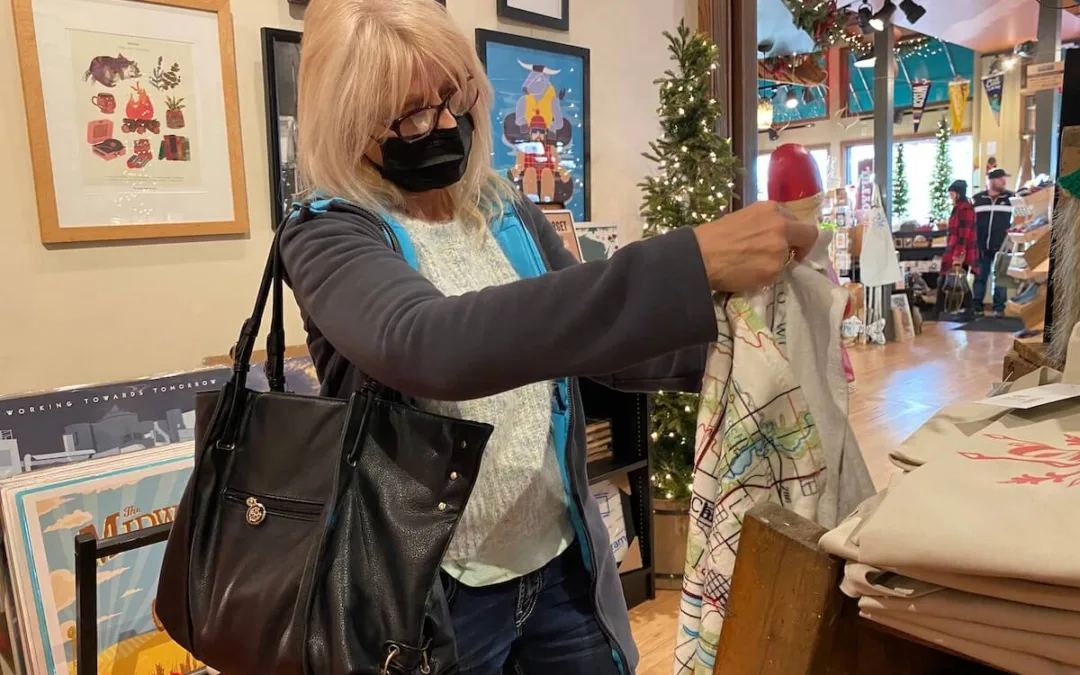
#image_title
#image_title
The voting block gave Biden a net 22,500 votes over Trump in Wisconsin, more than the margin of victory.
President-elect Joe Biden owes his victory in Wisconsin to high voter turnout in Dane County and the Milwaukee suburbs but one particular demographic his campaign credited for the victory is the state’s Indigenous population.
“The Native American Community truly was and is the margin of victory as we saw in Arizona, Minnesota, Wisconsin, and Michigan,” wrote Cara Lee Pratte, tribal engagement director for the Biden campaign in an email to supporters. “To each and every one of you – thank you!!!!“
In Wisconsin, Indigenous voters gave Biden a net 22,500 votes over Trump, more than the margin of victory for the state. Biden also received 27% more votes from Wisconsin’s Indigenous voters in 2020 than Hillary Clinton did in 2016.
Tricia Zunker, a member of the Ho-Chunk Tribe who lost her bid for Wisconsin’s 7th Congressional District seat, thinks that within that district, having an Indigenous candidate on the ballot helps boost turnout. Wisconsin’s 7th District is home to seven of Wisconsin’s 11 federally-recognized tribes. There are about 71,000 Native Americans of voting age in Wisconsin, according to Brandon Yellowbird Stevens, vice chairman for Oneida Nation and an election analyst.
“I have received messages from members from other tribes, not Ho-Chunk, that said, ‘I’ve never voted in an election other than a tribal election but I’m going to come out to vote for you,’” she said. “A native candidate does help turn out the Native vote.”
Zunker said, broadly speaking, many Indigenous people are not invested in state and national elections for a number of reasons, such as not trusting the government. The atrocities inflicted on Indigenous communities are not so long ago; Indigenous people today probably had parents or grandparents who are able to recount stories of the government-run boarding schools that vilified their languages, cultures, and spiritual beliefs. As a result, they’re more invested in their own tribal leadership than state or national government.
“Some of these things, like presidential elections, feel very outside [the community],” Zunker said.
Indigenous people also face similar barriers to other disenfranchised groups, such as a belief that their vote doesn’t count, lack of transportation to polling sites, and even a lack of information about voting.
With a lack of internet connectivity in many communities, and high poverty rates on tribal nations, many people are unable to access that information on their own. Zunker said just going door-to-door and handing out voter information in Native American communities, anecdotally, helped.
“Sometimes people just need that information in front of them,” she said.
Biden’s positions on key issues also helped motivate more voters, from supporting conservation efforts, fulfilling the promises to respect tribal sovereignty, enforce treaty rights, and provide health care within the tribal nations to investing in Indigenous youth and expanding job opportunities in clean energy. Another motivation could have been Trump’s failure to support hard-hit tribal communities during the COVID-19 pandemic, even excluding the tribes from initially receiving COVID-19-related federal aid.
“We have to vote not just for today but for future generations,” Zunker said. “When you consider the devastation another four years of Trump would have had as opposed to four years of improvement under Biden, we have an obligation and a duty to vote for future generations.”
Maybe knowing that the net gains Biden received from Indigenous communities were just slightly more than the number that flipped the state could help impress this voting block that, yes, voting is important and can make a difference, she said. Zunker said she doesn’t know how yet but she’s going to keep trying to grow that voter base.
“We’re going to keep working on it with every election,” she said. “As native people, we understand that it’s not just a right to vote but in fact an obligation. That we have a duty.”
Politics

Biden administration bans noncompete clauses for workers
The Federal Trade Commission (FTC) voted on Tuesday to ban noncompete agreements—those pesky clauses that employers often force their workers to...

Opinion: Trump, GOP fail January 6 truth test
In this op-ed, Milwaukee resident Terry Hansen reflects on the events that took place on January 6, the response from Trump and other GOP members,...
Local News

Readers Poll: Top Bowling Alleys in Wisconsin
Looking for the best bowling in Wisconsin? Look no further! Our readers have spoken in our recent poll, and we have the inside scoop on the top...

8 Wisconsin restaurants Top Chef judges are raving about
Top Chef’s 21st season is all about Wisconsin, and on-screen, it’s already apparent that the judges feel right at home here. But, while filming in...


